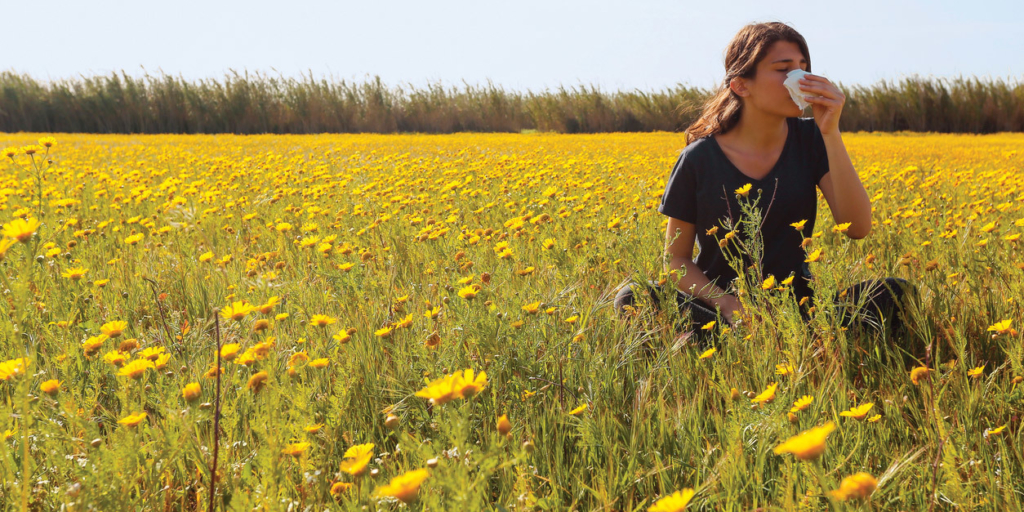Pollen Might Be Your Problem

For those who suffer from seasonal allergies, it’s always a bad sign when the seasons change and the cars start getting coated in yellow pollen. All of those beautiful flowers that make spring so enjoyable, or the changes in the trees and leaves in the fall, are also the cause of a lot of discomfort in allergy sufferers. That fine yellow dusting comes from the stamen in plants and is what allows flowers to grow and spread. Also called hay fever, allergic reactions can occur when the pollen spreads throughout the air. When pollen is in the air, it’s inhaled through both the nose and mouth, getting into your system and causing those uncomfortable allergic reactions.
How Do I Know I Have Allergies?
Usually, those who suffer from allergies are well aware that they have them. An estimated 24 million Americans, including 6 million children start reaching for the tissues and decongestants when the seasons begin to change. The most common symptoms of pollen allergies include sneezing, nasal congestion, runny nose, wheezing, itchy or watery eyes, itchy throat, and coughing.
How Can I Avoid The Pollen?
Unfortunately, you can’t simply stay inside for the duration of allergy season in an effort to avoid contact with the allergens. You can help reduce the severity of your symptoms by checking the weather daily and going out less on days when the pollen counts are high. You should avoid going out in the middle of the afternoon when those counts are higher as well. While it might be tempting to open up the windows at home or when you’re in the car, make sure to keep them closed in order to keep the pollen out. Frequent vacuuming with a vacuum containing a HEPA filter will help as well, along with a portable air filter for your home. You should also wash all of your clothes frequently to avoid bringing pollen and other allergens inside the house. Some of the most common offenders to pollen allergies include spring-blooming plants like pecan, hickory, oak, and birch trees. Ragweed is the worst in the fall and late summer. If you can determine the exact type of plants or trees you’re allergic to, you can avoid places where those trees and plants are more common.
When Should I Get Tested?
Since the seasons are in the process of changing, you’re likely to start seeing the negative effects of allergens soon, if you haven’t already. Stop in at one of TrustCare’ convenient locations to discuss your allergies with one of our doctors so we can put together a treatment plan and help you Feel Better Faster!
